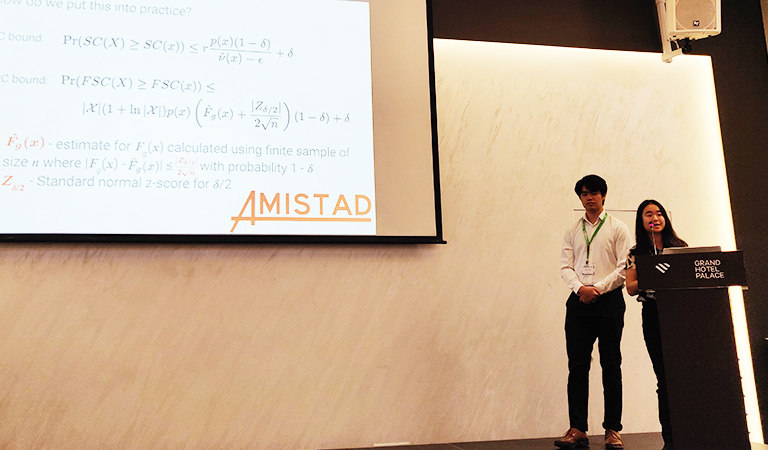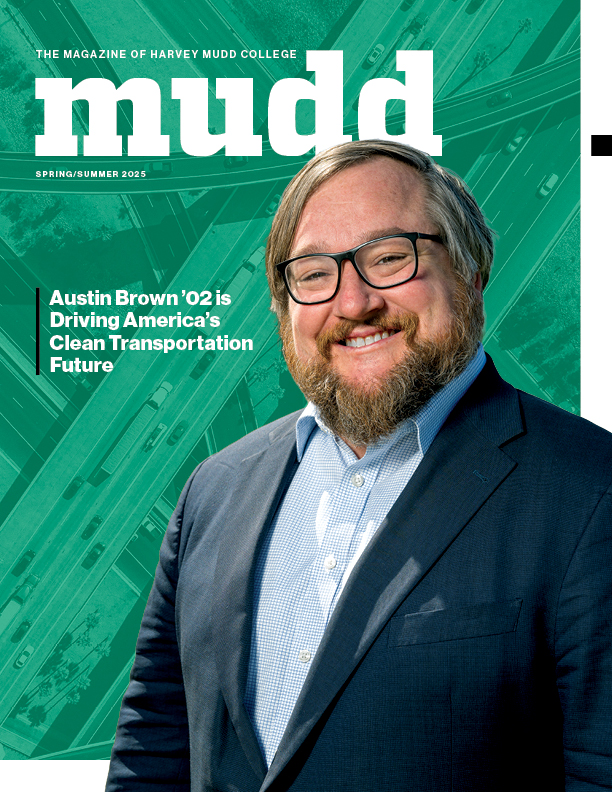CS Research Sets Boundaries for Two-Distribution Hypothesis Testing
January 11, 2024
Cynthia Hom ’23 and William Yik ’24, both prolific members of the AMISTAD Lab at Harvey Mudd College, presented research at the 10th IEEE International Conference on Data Science and Advanced Analytics in Thessaloniki, Greece, last October.
“Finite-Sample Bounds for Two-Distribution Hypothesis Tests,” co-authored with computer science professor George Montañez, builds on previous work co-authored by Hom (“The Gopher’s Gambit: Survival Advantages of Artifact-Based Intention Perception”) and Yik (“Identifying Bias in Data Using Two-Distribution Hypothesis Tests”).
Both earlier papers used two-distribution statistical hypothesis tests to investigate representational bias in machine learning training data (Yik) and to equip artificial agents with intention perception capabilities (Hom).
“This new work develops estimation procedures for applying such tests in cases where exact values cannot be computed,” says Montañez. “We proved mathematical bounds showing that in many cases random sampling can be used to conduct the tests instead of explicit enumeration. The upside is that these tests become much more accessible, allowing researchers to apply the tests without having to perform advanced combinatoric analysis. It opens this class of tests to everyone.”
The recent paper is Hom’s fourth with AMISTAD Lab and Yik’s second—he has three more publications outside the lab. Hom, a computer science major, now works at Stripe as a software engineer. She was a 2023 Computer Science Department Don Chamberlin Award winner and earned a 2023 Computing Research Association (CRA) Outstanding Undergraduate Researcher Honorable Mention award.
Yik is a 2024 CRA Outstanding Undergraduate Researcher Award finalist and is a National Oceanic and Atmospheric Administration Ernest F. Hollings Undergraduate Scholarship recipient. He is a CS/mathematics major and plans to attend a graduate program in CS, climate and applied mathematics. “My current research focuses on applications of artificial intelligence in climate modeling,” he says. “I’m working with professors at USC and University of California, Davis, on deep learning for atmospheric science and physical oceanography, respectively.”
The October 2023 trip to Greece was funded by the National Science Foundation, the HMC Department of Mathematics, the Leeds Student Travel Grants and HMC faculty start-up funds.
“Going to Greece was an amazing experience,” Yik says. “Academically, the highlight for me was seeing peoples’ genuine interest in our research. After our talk, we had insightful conversations with some research scientists about potential applications of our work and the connections it had with the problems they were thinking about. It just was really encouraging to see their enthusiasm for the work we had done.”
